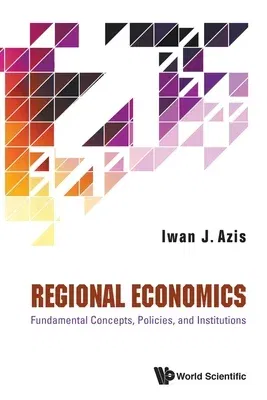Iwan Jaya Azis
(Author)Regional Economics: Fundamental Concepts, Policies, and InstitutionsPaperback, 14 January 2020

Qty
1
Turbo
Ships in 2 - 3 days
In Stock
Free Delivery
Cash on Delivery
15 Days
Free Returns
Secure Checkout
Print Length
184 pages
Language
English
Publisher
World Scientific Publishing Company
Date Published
14 Jan 2020
ISBN-10
9811213828
ISBN-13
9789811213823
Description
Product Details
Author:
Book Format:
Paperback
Country of Origin:
SG
Date Published:
14 January 2020
Dimensions:
22.86 x
15.24 x
1.02 cm
ISBN-10:
9811213828
ISBN-13:
9789811213823
Language:
English
Pages:
184
Publisher:
Weight:
254.01 gm

